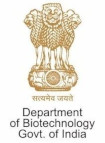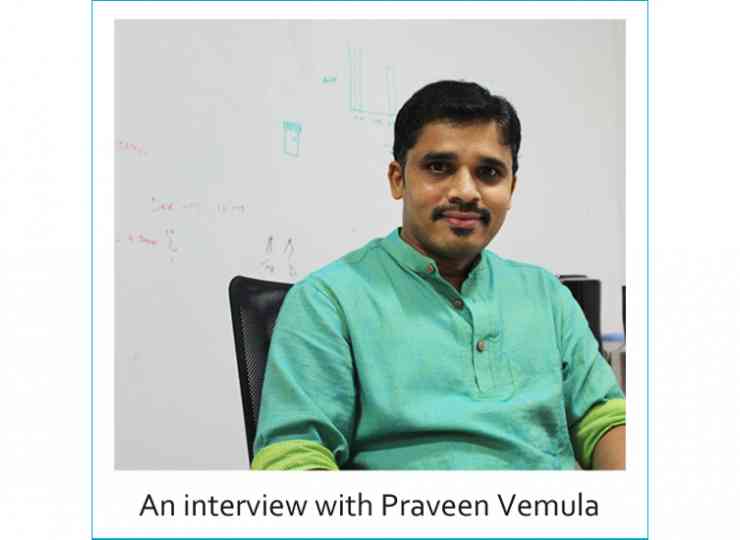Heart failure is a leading cause of death worldwide, shown to increasingly affect young individuals below the age of 40. Cardiomyopathy is an acquired or hereditary condition of the heart muscle, eventually leading to heart failure. Recent epidemiological and clinical studies suggest that a substantial proportion of cardiomyopathy patients (around 10%) coexist with diabetes. So far, the genetic link underlying this complex disease is less understood.
In the latest issue of Science Advances, Dhandapany et al., provide the first evidence for a shared genetic link between cardiomyopathy and metabolic syndrome among South Asians. This information can be highly beneficial for both, early identification and the development of preventive strategies for this disease.

Using next-generation sequencing, the Dhandapany's lab screened around 2552 cardiomyopathy patients with and without diabetes, and identified novel and ultra-rare variants in a metabolism-related gene called 'Adiponectin receptor protein 1' (ADIPO1R). Importantly, these ADIPOR1 gene variants were absent in South Asian-specific 1800 healthy individuals. ADIPO1R is a receptor for the hormone adiponectin, which regulates glucose and lipid metabolism in human cells. Further, to understand these variants' role in causing heart disease, Dhandapany et al. used cardiomyocytes (cells involved in heart function) and showed significant dysregulations in glucose metabolism and increased cell size with enhanced expression genetic markers associated with cardiac hypertrophy. These genetic variants were shown to alter normal molecular signaling mechanisms essential for the routine functioning of cardiac cells.
Deepak Kashyap, a graduate student analyzed exomes of various Indian patients for the specific ADIPOR1 mutations and explored the signaling using immunoblot analysis. “As each of these variants are found to be affecting a unique signaling molecule and its biological process, therapeutic strategies should be tailor-made based on the nature and type of the variant associated with this disease”, the lead author Dr. Dhandapany Perundurai explained.
The inStem investigators in collaboration with Icahn School of Medicine investigator (Djamel Lebeche) at New York used an approved pharmacological inhibitor to block the abnormally activated signaling process in genetically modified mice harboring a representative ADIPOR1 mutation exhibiting cardiac hypertrophy. They observed a substantial reduction in detrimental effects caused by the ADIPOR1 gene variants. Together, these results hold out the possibility of alternative druggable targets for this cardiac disorder.
“It is sensible to conclude that a simple genetic test would help us to spot out the individuals who are highly susceptible to cardiac muscle disorder. Early diagnosis of ‘at-risk’ population will help us to prescribe appropriate preventive health plans to subdue the harmful effects associated with this disease,” said Dhandapany.
Dr. Perundurai is an investigator in the centre for cardiovascular and disease biology (CCBD) theme in the Institute for Stem Cell Science and Regenerative Medicine (DBT-inStem), an autonomous institute of the Department of Biotechnology, India. The work is a collaboration with the Indian Institute of Science (IISc), Bangalore, the Centre for Cellular and Molecular Biology (CCMB), Hyderabad, the Oregon Health and Science University, Portland and Icahn School of Medicine at Mount Sinai, New York. The work is funded by the DBT-Wellcome Trust India Alliance. The key collaborators and clinicians involved in the study are Djamel Lebeche from Icahn School of Medicine at Mount Sinai, New York, Jayaprakash Shenthar and Shilpa Jayaprakash, cardiologists from Department of Cardiology, Sri Jayadeva Institute of Cardiovascular Sciences and Research, Bengaluru, India.
Reference
Adiponectin receptor 1 variants contribute to hypertrophic cardiomyopathy that can be reversed by rapamycin
Perundurai S. Dhandapany, Soojeong Kang, Deepak K. Kashyap, Raksha Rajagopa, Nagalingam R. Sundaresan, Rajvir Singh, Kumarasamy Thangaraj, Shilpa Jayaprakash, Cholenahally N. Manjunath, Jayaprakash Shenthar and Djamel Lebeche, Jan 2021, Science Advances
https://advances.sciencemag.org/content/7/2/eabb3991
Publication Date: Jan 07, 2020
Media Coverage











